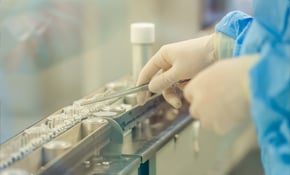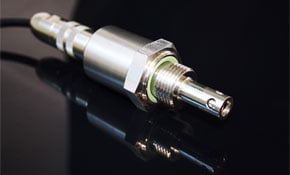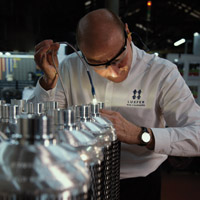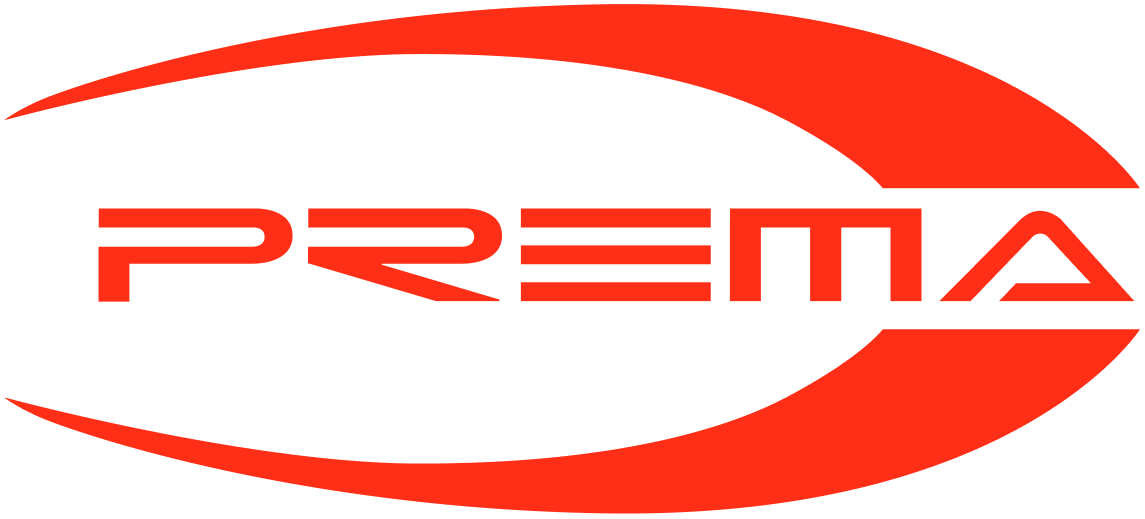The latin phrase “cum laude” is used in universities to represent a level of achievement or designation i.e., performed to perfection. It is a mandate that is taken literally at Mattei.
 Ettore D’Aliesio, is a mechanical engineer and the company Operations Quality Manager. His key responsibility is product quality control; with the ultimate goal being that Mattei products arrive at the customer’s premises having been verified as to being in full compliance with the specifications as set out in the technical data sheets.
Ettore D’Aliesio, is a mechanical engineer and the company Operations Quality Manager. His key responsibility is product quality control; with the ultimate goal being that Mattei products arrive at the customer’s premises having been verified as to being in full compliance with the specifications as set out in the technical data sheets.
“This is an integral part of the production department”, he explains, “and equipped with several testing bays run by experienced operators. The existence of several testing bays makes it possible to carry out verification operations in parallel thus, improving the efficiency of the accurate control phase”.
The testing process is carried out in several stages: “First the calibration of the control systems are carried out, followed by a run-in and cleaning cycle. Then, functional and performance checks are carried out, including confirming that the amount of energy absorbed is consistent with declared. Finally, we want to ensure that the finished machines are complete with any accessories and all relevant documentation before being shipped”.
At Mattei we do not carry out sample testing: each and every product is tested before being delivered to the customer. “That’s another reason why we say we’re a production department; testing is an integral part of making the machine”. The duration of the testing phase varies according to the “size” of the machine that is to be tested. The run-in and cleaning cycle can take up to several hours. But thanks to the abundance of several test bays in parallel for each size of machine, it ensures we have the capacity to process the entire day’s planned production.
The aim of the testing process is not only to validate the products, but also to collect data during testing and maintain constant and continuous contact with both production and design. “Our role is an active one, with the aim of increasing the percentage of ‘first pass yield’, i.e., machines that pass inspection immediately. To do this, we must be scrupulous in our operations, documenting every single detail which can prevent assembly errors, or lead to an improvement in the manufacturing production processes”.
The testing department is always cognizant of two main objectives: on one hand there is the need to meticulously conduct the planned testing cycles, and on the other there is the urgency to meet deadlines and deliver the product to the customer in perfect condition while meeting or exceeding the required quality standards while, achieving the KPI’s defined by the company.
For this reason, test engineers are required to have extensive skills and experience. Test personnel have already worked in other production departments and have the experience not only to detect problems, but also to understand how to solve them, and what to communicate to prevent their recurrence. In the case of new employees there is thorough and comprehensive training.
There is also a valuable awareness about testing: “Doing your job well is not enough. Collaboration and teamwork, even across different departments, are key to growth, whilst learning from mistakes and putting tools in place to avoid them, allows for continuously improving products” concludes D’Aliesio.
From Vane Magazine 19, February 2022


 Ettore D’Aliesio, is a mechanical engineer and the company Operations Quality Manager. His key responsibility is product quality control; with the ultimate goal being that Mattei products arrive at the customer’s premises having been verified as to being in full compliance with the specifications as set out in the technical data sheets.
Ettore D’Aliesio, is a mechanical engineer and the company Operations Quality Manager. His key responsibility is product quality control; with the ultimate goal being that Mattei products arrive at the customer’s premises having been verified as to being in full compliance with the specifications as set out in the technical data sheets.











